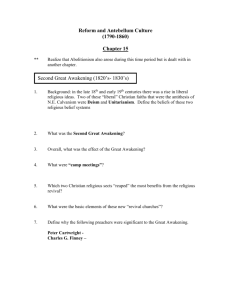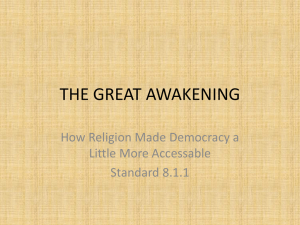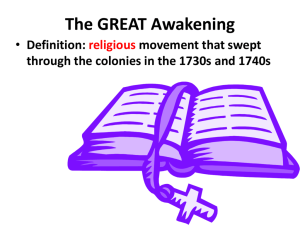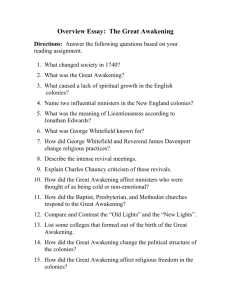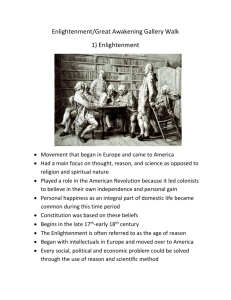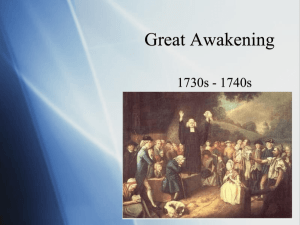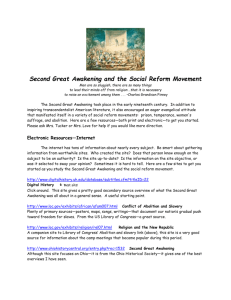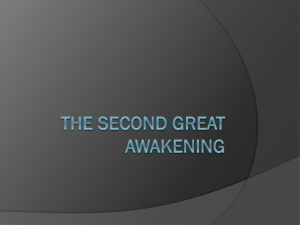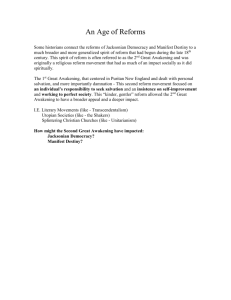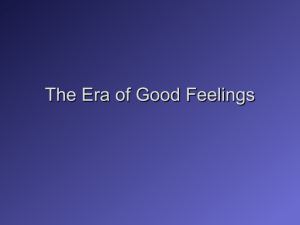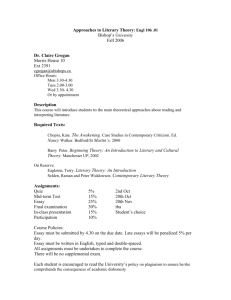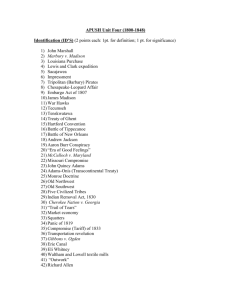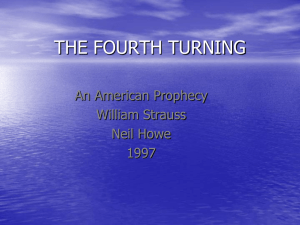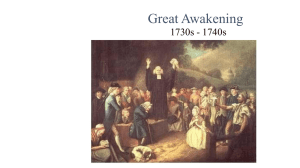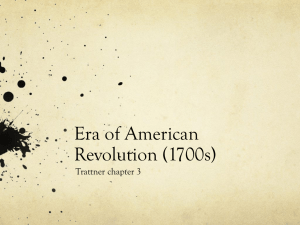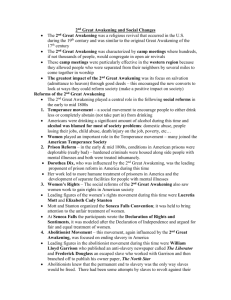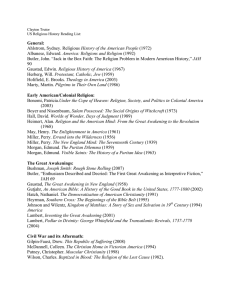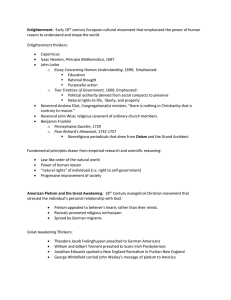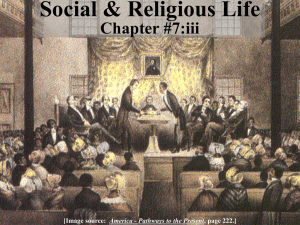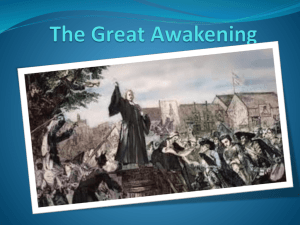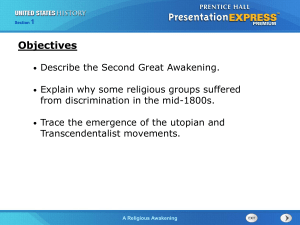the great awakening
advertisement
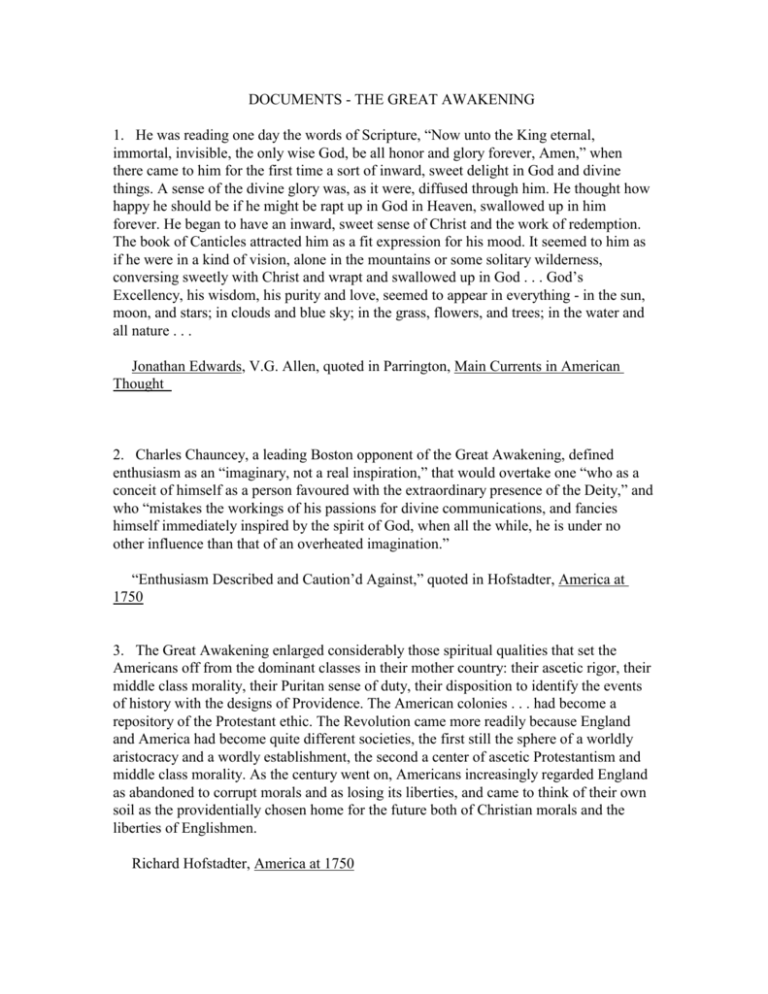
DOCUMENTS - THE GREAT AWAKENING 1. He was reading one day the words of Scripture, “Now unto the King eternal, immortal, invisible, the only wise God, be all honor and glory forever, Amen,” when there came to him for the first time a sort of inward, sweet delight in God and divine things. A sense of the divine glory was, as it were, diffused through him. He thought how happy he should be if he might be rapt up in God in Heaven, swallowed up in him forever. He began to have an inward, sweet sense of Christ and the work of redemption. The book of Canticles attracted him as a fit expression for his mood. It seemed to him as if he were in a kind of vision, alone in the mountains or some solitary wilderness, conversing sweetly with Christ and wrapt and swallowed up in God . . . God’s Excellency, his wisdom, his purity and love, seemed to appear in everything - in the sun, moon, and stars; in clouds and blue sky; in the grass, flowers, and trees; in the water and all nature . . . Jonathan Edwards, V.G. Allen, quoted in Parrington, Main Currents in American Thought 2. Charles Chauncey, a leading Boston opponent of the Great Awakening, defined enthusiasm as an “imaginary, not a real inspiration,” that would overtake one “who as a conceit of himself as a person favoured with the extraordinary presence of the Deity,” and who “mistakes the workings of his passions for divine communications, and fancies himself immediately inspired by the spirit of God, when all the while, he is under no other influence than that of an overheated imagination.” “Enthusiasm Described and Caution’d Against,” quoted in Hofstadter, America at 1750 3. The Great Awakening enlarged considerably those spiritual qualities that set the Americans off from the dominant classes in their mother country: their ascetic rigor, their middle class morality, their Puritan sense of duty, their disposition to identify the events of history with the designs of Providence. The American colonies . . . had become a repository of the Protestant ethic. The Revolution came more readily because England and America had become quite different societies, the first still the sphere of a worldly aristocracy and a wordly establishment, the second a center of ascetic Protestantism and middle class morality. As the century went on, Americans increasingly regarded England as abandoned to corrupt morals and as losing its liberties, and came to think of their own soil as the providentially chosen home for the future both of Christian morals and the liberties of Englishmen. Richard Hofstadter, America at 1750 4. The Great Awakening . . . set in motion currents that still flow in American life. It implanted permanently in American culture the evangelical principle and the endemic style of revivalism. The movement weakened the status of the old fashioned clergy and encouraged the believer to exercise his own judgment, and thereby weakened habits of deference generally. By adding to the proliferation of denominations it added to the need for toleration of dissent . . . George B. Tindall, America: A Narrative History The Great Awakening (1740’s – 50’s) I. origins A. response to Puritanism B. external factors C. definition II. The Awakeners A. George Whitefield B. Jonathan Edwards III. results A. first national event in American History B. other results/effects
